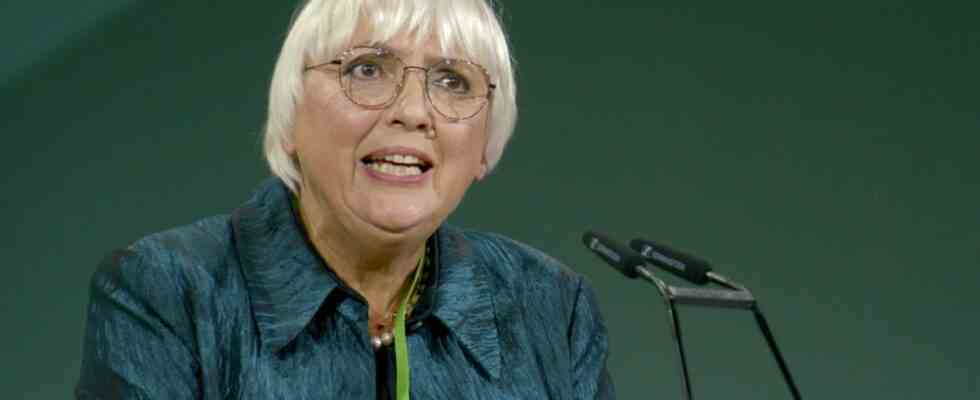Minister of State for Culture Claudia Roth (Greens) has encouraged the idea of temporarily superimposing a controversial inscription on the dome of the Berlin Palace, which has been the seat of the Humboldt Forum for two years, in an art project. The inscription placed around the dome as a banner consists of composite Bible verses that have been the subject of heated debate for a long time. The Union parliamentary group had now accused Roth of wanting to cover up the quotation from the Bible. The lettering on the dome must remain visible, said the cultural policy spokeswoman for the parliamentary group, Christiane Schenderlein. Roth then corrected: The project envisages a “temporary superimposition of the reconstructed inscription with alternative, commenting and reflective texts. The inscription is therefore preserved, it is only made visible that the Humboldt Forum critically deals with its statement”.
The inscription runs as a banner below the dome on the new building of the Berlin Palace and is a combination of two quotations from the Bible.
(Photo: Bernd von Jutrczenka/dpa)
A good year ago, the forum presented the idea of superimposing the Bible text at night with alternative, contrasting sayings using light elements. “The implementation would mean that the reconstructed inscription would be visible during the day and other texts would be visible in the dark,” explained a forum spokesman. The project came about during the tenure of Roth’s predecessor as Minister of State for Culture, Monika Grütters (CDU). At the time, she was also chairwoman of the Foundation Council of the Humboldt Forum, to which Roth now refers.
Critics see the inscription as an expression of Christian colonial rule
The controversial inscription reads in full: “There is salvation in no other, no other name given to men, but in the name of Jesus, to the glory of God the Father. That at the name of Jesus every knee should bow that are in heaven and are on earth and under the earth.” The words come from the Prussian King Friedrich Wilhelm IV, who had a chapel built on the Berlin Palace in 1844. Today, critics from Africa recognize the saying and the cross on the dome Symbols of Christian colonial rule again. Others simply doubt that the Christian presentation fits the facade of a universal museum and exhibition center like the Humboldt Forum. In fact, the cross and the inscription were part of the historic reconstruction of the castle that the Bundestag decided 20 years ago. The view on it has changed since then.
To think that the inscription is “simply an apolitical sign of religiosity” is “astonishing and blind to history,” said Minister of State for Culture Roth. From the point of view of many historians, a political message could be clearly derived from the inscription, which underpins the Prussian king’s claim to power, which was derived solely from God. According to Roth, the Basic Law and democracy are not part of the tradition of a repressive monarchy and empire that based its claim to power solely on God.
The Union faction pointed out that an information board was planned on the roof terrace of the castle anyway, which should classify the Bible verses for visitors. This is entirely sufficient.

